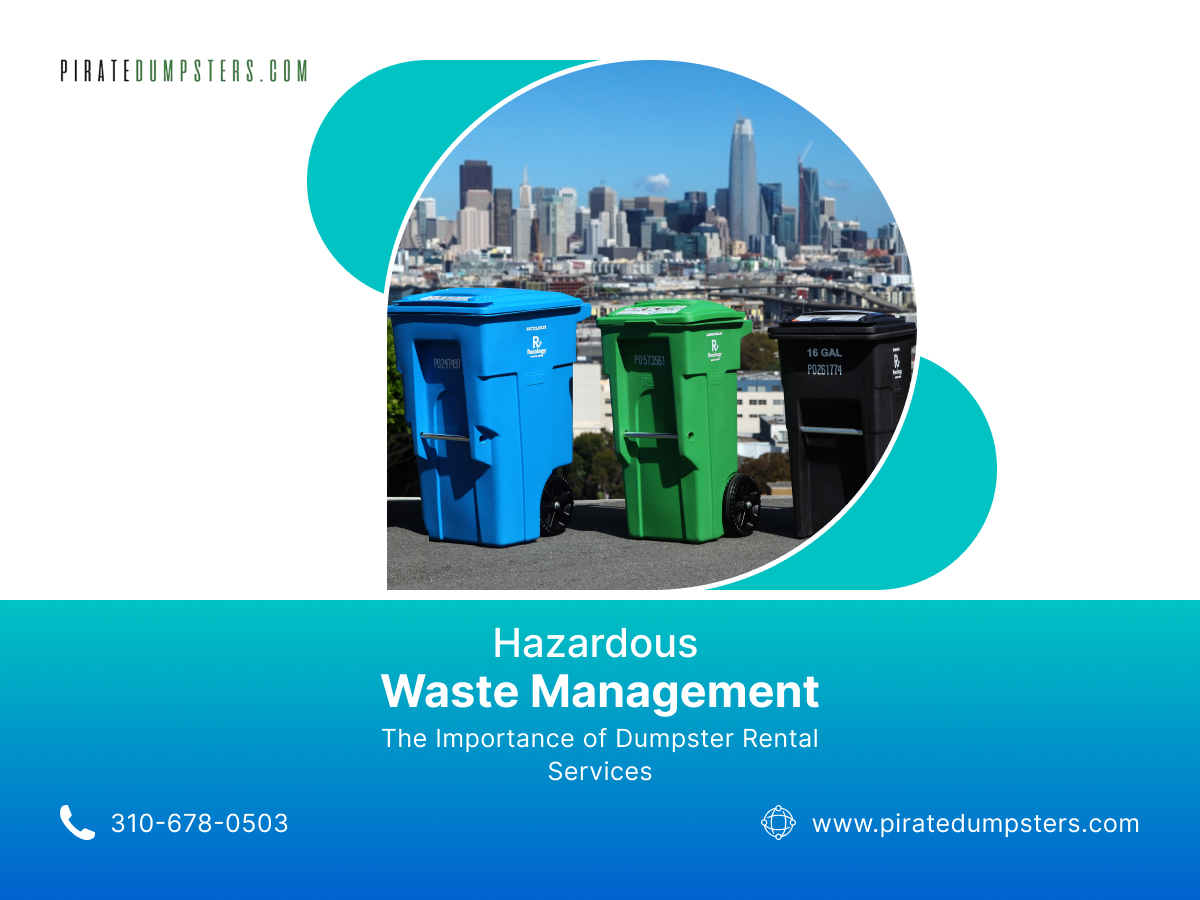
Over 270 million tons of hazardous waste were generated in 2018, as per the reports from Environmental Protection Agency (EPA). This much waste can cause serious health and environmental problems if not disposed of properly. The issues of improper disposal of this waste may lead to the release of toxic chemicals into the air and contamination of water and soil.
Hazardous waste is a potential threat to the environment and human population, but what is it?
Hazardous waste is anything that is potentially harmful to the health of the human population or environment. It includes pesticides, chemicals, batteries, medical waste or electronic waste, and a lot more than that.
The improper disposal of waste can cause a possible potential threat to health and environmental safety. That is why it is crucial to dispose of waste properly. High chances of contamination of the groundwater and surface water may cause harm to the ecology and the wildlife in the nearby communities. The improper disposal of hazardous waste can cause serious health problems including respiratory disease, skin irritations, and even cancer.
It is vital to dispose of hazardous waste material to shield human health and the environment. We can achieve the aim of disposing of hazardous waste in multiple ways but transporting it to the location is significant.
A dumpster rental service, like Pirate Dumpsters, can help communities to dispose of waste efficiently. Dumpster rental companies for hazardous waste management are an important solution for businesses and individuals who need to dispose of hazardous waste in a safe and responsible manner. These trash removal services provide a convenient and efficient way to manage and dispose of hazardous waste materials, including chemicals, batteries, electronic waste, medical waste, and other types of hazardous waste.
Hazardous waste is of various types that include some of the potential threats:
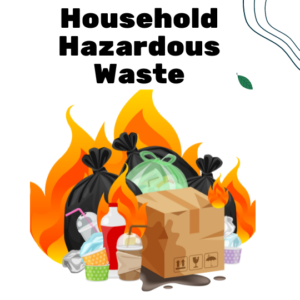
Household hazardous waste is a term used to describe a wide range of household items that are potentially dangerous or harmful to human health or the environment. This type of waste includes items such as cleaning products, pesticides, batteries, and other household chemicals.
According to the Environmental Protection Agency (EPA), household hazardous waste accounts for over 10% of all hazardous waste generated in the United States.
It is important to properly dispose of household hazardous waste in order to minimize the potential risks associated with this type of waste. This can be done by utilizing local collection programs, which are designed to safely manage and dispose of household hazardous waste, or by properly storing and disposing of these items through a dumpster rental service.
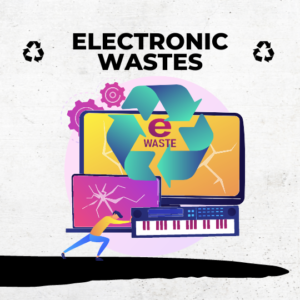
Electronic waste, or e-waste, refers to electronic devices that are no longer in use, including computers, televisions, cell phones, and more. According to the United Nations (UN), e-waste is one of the fastest-growing forms of waste in the world, with an estimated 50 million metric tons generated in 2018.
E-waste contains a wide range of hazardous materials, including heavy metals, lead, and chemicals that are harmful to human health and the environment. Proper disposal of e-waste is essential in order to minimize the potential risks associated with this type of waste. This can be done by utilizing local e-waste recycling programs, or by using a dumpster rental service that specializes in the safe disposal of electronic waste.
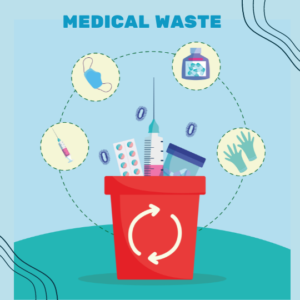
Medical waste refers to any waste that is generated as a result of medical activities, including sharps, medical equipment, and other types of medical waste. According to the World Health Organization (WHO), medical waste accounts for approximately 5% of all waste generated globally.
Medical waste is a particularly dangerous type of waste due to the potential for exposure to blood-borne pathogens and other hazardous materials. Proper disposal of medical waste is essential in order to minimize the potential risks associated with this type of waste. This can be done through the use of specialized medical waste disposal services, which are designed to safely and responsibly manage medical waste.
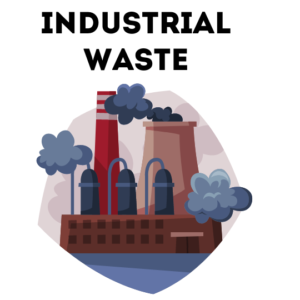
Industrial waste refers to any waste generated as a result of industrial activities, including chemicals, waste oil, and other types of industrial waste. According to the World Bank, industrial waste accounts for approximately 20% of all waste generated globally.
Industrial waste is particularly dangerous due to the high levels of hazardous materials that are present in this type of waste. Proper disposal of industrial waste is essential in order to minimize the potential risks associated with this type of waste. This can be done through the use of specialized industrial waste disposal services, which are designed to safely and responsibly manage industrial waste.
Hazardous waste poses a significant risk to human health and the environment, and it is essential that this type of waste is managed and disposed of in a safe and responsible manner. Improper disposal of hazardous waste can have serious consequences, including environmental risks, health risks, and legal consequences.
In this guide, we will explore the risks associated with the improper disposal of hazardous waste, and the importance of utilizing specialized disposal services to minimize these risks.
Improper disposal of hazardous waste can have significant environmental impacts, including soil and water contamination, air pollution, and wildlife exposure. Hazardous waste can seep into soil and groundwater, contaminating local water supplies and posing a significant risk to human health.
Additionally, improper disposal of hazardous waste can result in the release of hazardous materials into the air, leading to air pollution and exposure to toxic chemicals. Wildlife and plant life can also be affected, with exposure to hazardous waste leading to a range of health problems and death.
According to the United Nations (UN), over 80% of hazardous waste is generated by industrialized countries, with the majority of this waste being exported to developing countries for disposal. This has led to significant environmental problems, including soil and water contamination, air pollution, and wildlife exposure in these countries.
Improper disposal of hazardous waste can have serious health impacts, including exposure to toxic chemicals, inhalation of hazardous fumes, and contamination of local water supplies. Hazardous waste can contain a range of toxic chemicals and heavy metals, including lead, mercury, and cadmium, which are harmful to human health and can cause a range of health problems, including cancer, birth defects, and developmental problems.
Inhalation of hazardous fumes and dust can also lead to respiratory problems, including asthma and other lung diseases. Exposure to hazardous waste through contaminated water supplies can result in exposure to harmful chemicals and pathogens, leading to serious health problems.
According to the World Health Organization (WHO), exposure to hazardous waste is a leading cause of death in developing countries, with over 1 million deaths annually attributed to exposure to hazardous waste.
Improper disposal of hazardous waste can have serious legal consequences, including fines, legal action, and imprisonment. The disposal of hazardous waste is governed by a range of national and international regulations, including the Resource Conservation and Recovery Act (RCRA) in the United States, and the Basel Convention in Europe.
Failure to properly manage and dispose of hazardous waste can result in significant fines and legal action, with individuals and businesses facing penalties for non-compliance with regulations. In some cases, individuals may even face imprisonment for the illegal disposal of hazardous waste.
Improper disposal of hazardous waste poses a significant risk to human health and the environment, and it is essential that this type of waste is managed and disposed of in a safe and responsible manner. By utilizing specialized junk removal services, individuals and businesses can minimize the risks associated with improper disposal of hazardous waste, and ensure that hazardous waste is managed in a safe and responsible manner.
A good quality dumpster rental service like Pirate Dumpster provides a convenient, efficient, safe, and secure solution for managing hazardous waste. They also ensure compliance with regulations and protect the environment and public health.
When it comes to hazardous waste management services, choosing the right dumpster rental company is crucial. Here are several factors to consider when making your selection:
When choosing a dumpster rental company for waste management services, it’s important to consider their reputation and experience, compliance with regulations, availability of appropriate dumpster sizes, and affordable pricing. By taking the time to carefully evaluate these factors, you can ensure that your hazardous waste is handled safely and responsibly.
Dumpster rental services play a crucial role in managing hazardous waste. They provide convenient and efficient disposal, safe and secure storage, compliance with regulations, and protection for the environment and public health.
Pirate Dumpster is a top-notch dumpster rental company that offers a range of sizes and prices to meet the needs of all customers. With a reputation for reliability and expertise, Pirate Dumpster is a top choice for those seeking a safe and responsible solution for hazardous waste management.
Choosing the right dumpster rental company is a critical decision when it comes to hazardous waste management. With its reputation for excellence, experience, and compliance with regulations, Pirate Dumpster is a smart choice for anyone looking for a safe and responsible solution. If you search “Dumpster rental near me” you can find the best roll-off dumpster rental with residential dumpster rental and commercial dumpster rental services.
We highly recommend Pirate Dumpster for all your hazardous waste management needs. Contact them today to learn more about their services and get a quote.
Serving the greater Southern California area with distinction, we bring our expertise in hazardous waste management to the communities of Pasadena, San Bernardino, Los Angeles, and Ontario.
Hazardous waste management is important because it helps protect human health and the environment by preventing harmful substances from contaminating soil and water and causing harm to people and wildlife.
The three main goals of hazardous waste management are:
Waste management is important as it helps to maintain a clean and healthy environment by preventing waste from contaminating soil and water, and reducing the spread of disease. It also conserves natural resources and helps to reduce greenhouse gas emissions.
Hazardous waste management practices include waste minimization, proper storage, treatment, and disposal of hazardous waste, as well as monitoring and reporting of waste handling activities.
The most important aspect of waste management is ensuring that waste is managed in a way that protects human health and the environment. This requires a combination of reducing waste generation, properly storing, treating, and disposing of waste, and monitoring waste handling activities.
The objectives of hazardous waste management are to reduce the generation of hazardous waste, to ensure the safe treatment and disposal of existing waste, and to prevent or minimize the release of hazardous substances into the environment.
The objective of a hazardous waste management plan is to outline the steps that will be taken to safely manage hazardous waste, from its generation to its final disposal. This includes procedures for identifying, storing, treating, and disposing of hazardous waste, as well as monitoring and reporting waste-handling activities.
The four characteristics of hazardous waste are properties that make a waste substance hazardous and potentially harmful to human health and the environment. These characteristics are:
It is important to note that not all waste with these characteristics is considered hazardous waste, as the definition of hazardous waste can vary by jurisdiction. However, waste with any of these characteristics is typically regulated and must be handled, stored, and disposed of in accordance with relevant laws and regulations.
The management of hazardous waste requires a combination of several techniques to ensure the safe handling, storage, treatment, and disposal of these materials. The four main ways to manage hazardous waste are:
It is important to note that each step of the hazardous waste management process must be carried out in accordance with relevant laws and regulations to ensure the safety of workers and the environment. Proper management of hazardous waste helps to prevent harm to human health and the environment and ensures the safe disposal of these materials.